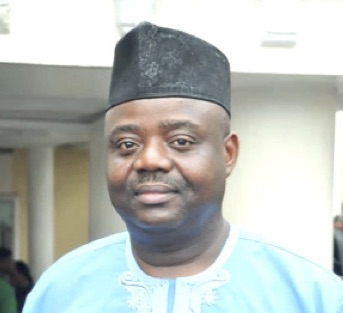By Brown Chimezie
At a time a lot of Nigerians who voted for Bola Ahmed Tinubu in the February 25,2023 presidential election are regretting their action as a result of the economic hardship and other challenges bedeviling the country, the National President, Igbo stakeholders forum, Prince Nixon Okwara has said that he has no iota of regret still standing behind the president.
Prince Okwara who was a member of the defunct All Progressives Congress, Presidential Campaign Council (APC PCC), said that his unwavering support for the president is deeply rooted in a firm belief in the president’s vision and capacity to bring the reforms Nigeria desperately needed, adding that from the pre-election period to over a year into Tinubu’s presidency, he has remained steadfast in his allegiance to the presidency and has not been disappointed.
In this interview, Okwara spoke on various issues.
You were one of those zealous of Tinubu becoming president. One year down the line, as we say in our parlance, ‘how market’?
Well, to be honest with you, nothing has really changed. I am still as steadfast as ever in my support for him. What a lot of people are calling hardship at the moment is like taking a bitter pill, which will later heal the body. That is the reason why I am appealing to Nigerians to exercise a little patience because sooner than later, we will all begin to smile. When I first began publicly supporting Tinubu, it was not a popular stance, especially in the South East. I was once dubbed the “Jagaban of Igboland” because I dared to don Asiwaju’s cap in a region where campaigning for him was seen as a significant risk. Even within our party, the APC, there were voices that urged me to distance myself from Tinubu, warning that associating with him publicly would be detrimental to my life and even political future. But, I remained unshaken. My conviction was stronger than the fear of backlash or the threat of isolation.
My unwavering support for Asiwaju Bola Ahmed Tinubu is deeply rooted in a firm belief in his vision and capacity to bring the reforms Nigeria desperately needs. From the pre-election period to over a year into his presidency, I have remained steadfast in my allegiance to Bola Ahmed Tinubu, and I have not been disappointed.
Going by what most Nigerians are going through, supporting him right now looks like going against the trend. Don’t you think so?
The question you should ask is why did I support him then, and why do I continue to stand by him now? The answer lies in the reforms Nigeria needs to succeed—reforms that Asiwaju is courageously implementing. From the beginning, I believed that Tinubu had the vision and the fortitude to drive the kind of institutional changes that would pave the way for sustainable development and effective governance. Today, he is doing exactly what I expected him to do, and I want him to continue, even if it means stepping on toes. The truth is that Nigeria’s challenges are not just about leadership; they are about the structural weaknesses that have plagued our system for decades. We need institutional frameworks that can drive development and genuinely fight corruption—not the superficial anti-corruption efforts we witnessed under the last administration. It is ironic to see those who were silent while Nigeria was being mismanaged now suddenly calling for good governance. These are the same individuals who were beneficiaries of the Buhari administration. Where was their concern for justice and equity during the last eight years? Their sudden advocacy for the marginalized Igbo is nothing more than opportunism. The Igbo are not and will never be a pawn in anyone’s game. We are committed to supporting President Bola Ahmed Tinubu for the full duration of his tenure.
What is the very important thing that you would want Tinubu to do before 2027?
There is one crucial task that I hope President Tinubu does not overlook: the restructuring of Nigeria before 2027. Our current system, where states are heavily dependent on federal allocations, is unsustainable. Each state should have the autonomy to develop according to its strengths and capacities. It is inequitable for states that consider alcohol as haram to benefit from its proceeds. We cannot continue to operate under such double standards. Justice and equity demand that those who criminalize certain activities should not benefit from them. No one, not Peter Obi, not Atiku, or any other potential leader, can wave a magic wand to fix the economic mess left by the previous administration. The road ahead requires tough decisions and hard measures. What I admire most about President Tinubu is his refusal to make excuses. He has taken responsibility for the state of the nation and is working tirelessly to correct the course. This is the kind of leadership Nigeria needs—bold, decisive, and accountable.
What advice do you have for those who cannot see things your way?
To those who mock us as political neophytes, I say this: Time will prove that we understood the dynamics of power better than they imagined. Supporting this administration was never about personal gain; it was and remains about the future of Nigeria. I have no regrets, only pride in standing by a leader who is committed to doing what is right for our nation

